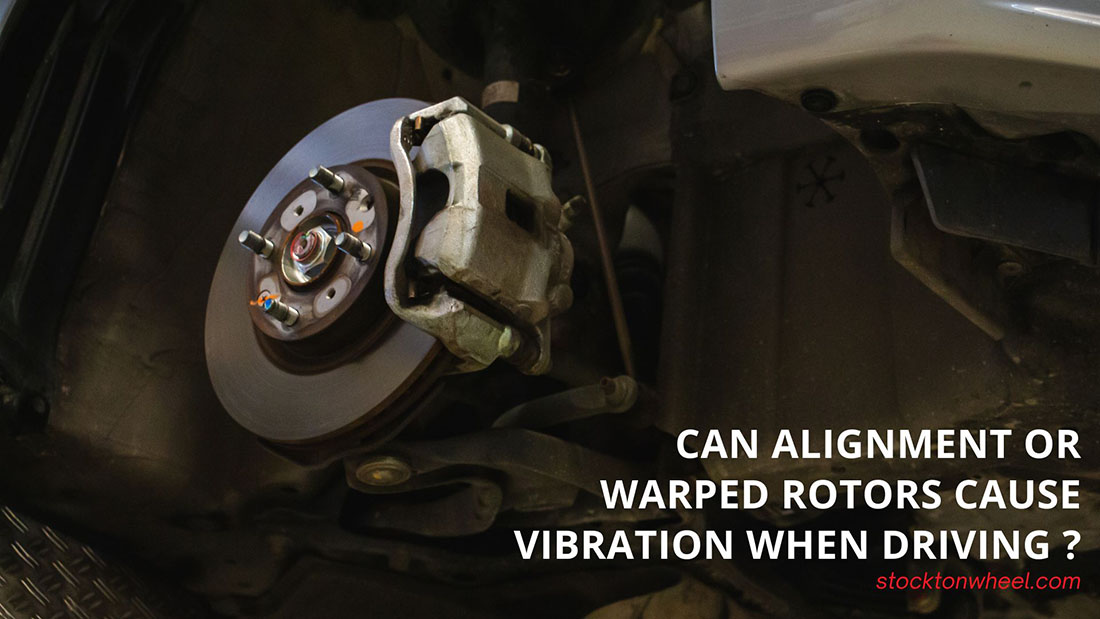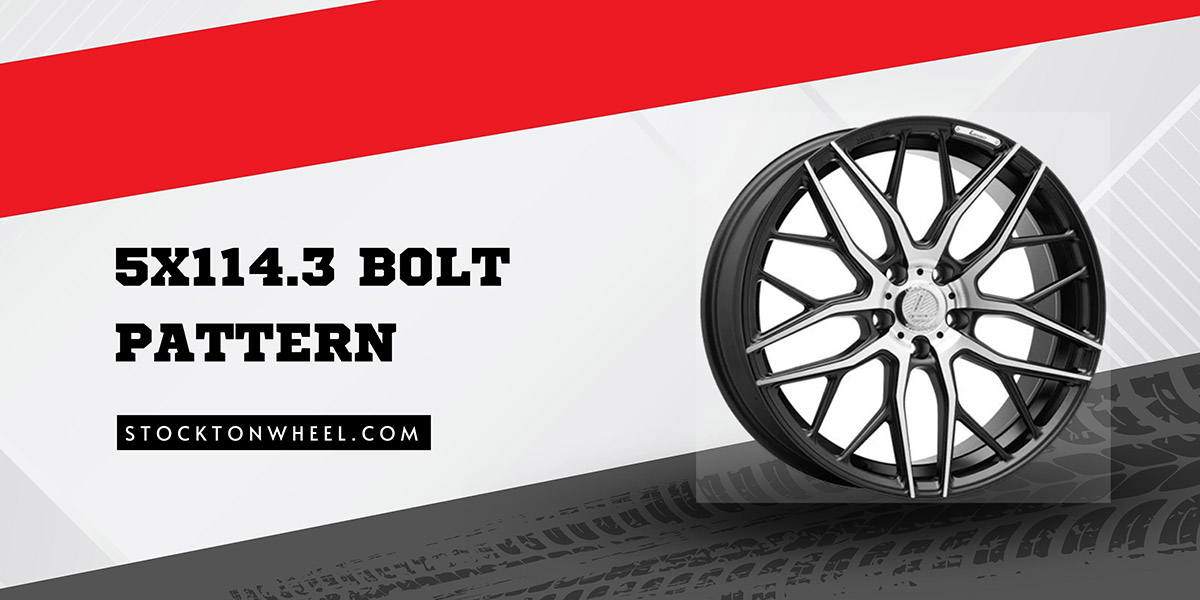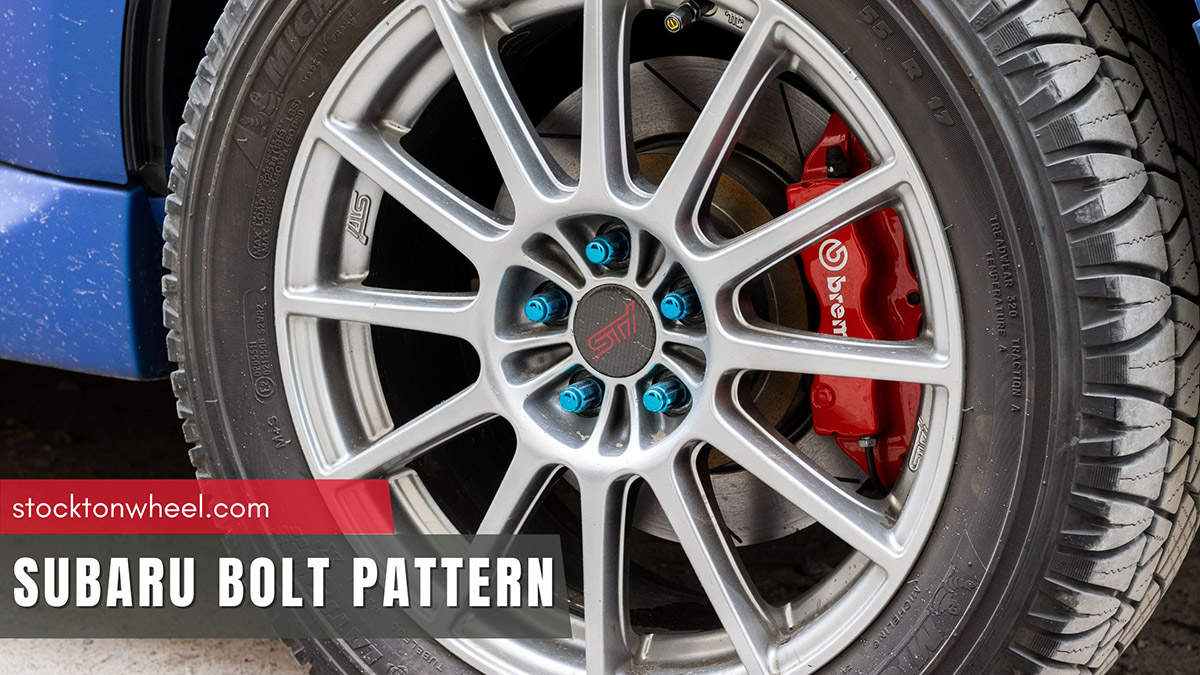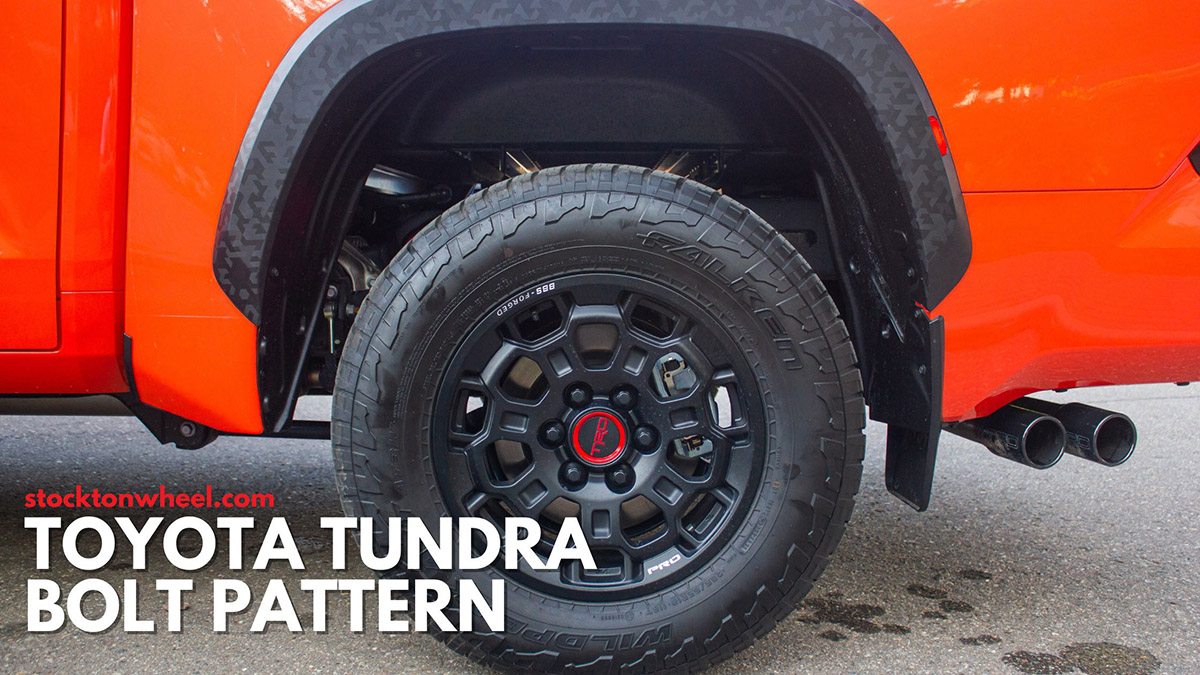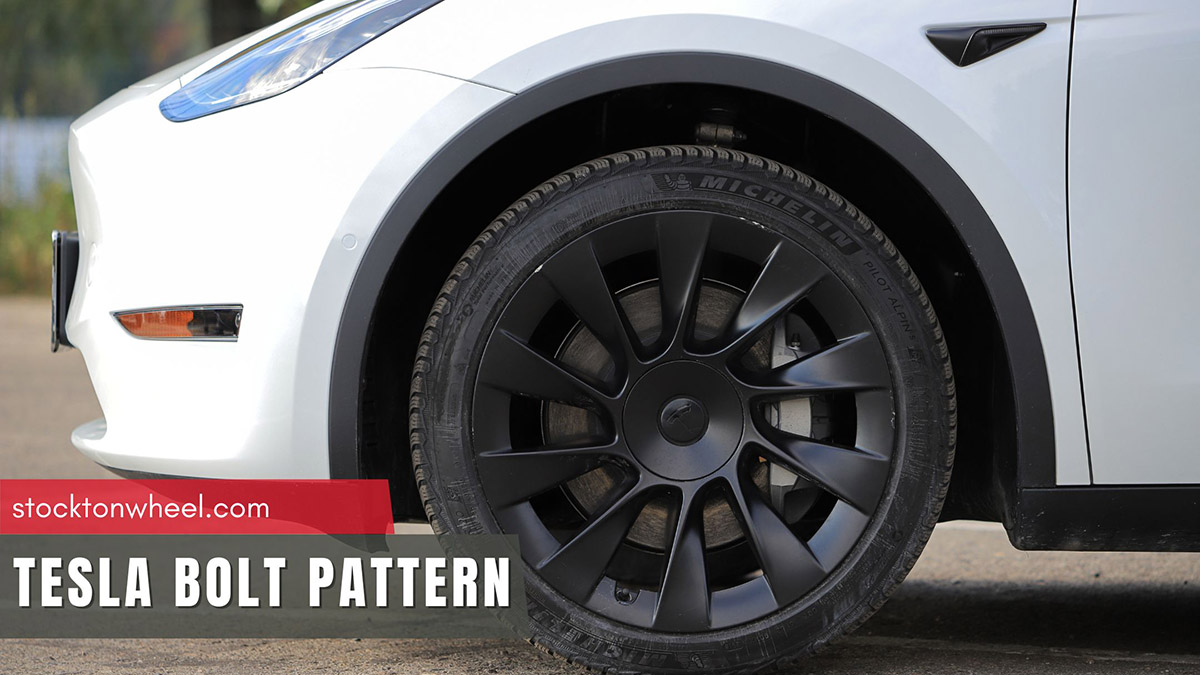Can alignment cause vibration at high speeds? It’s a question that often puzzles car owners when they feel their vehicle shaking on the road.
Alignment issues and warped brake rotors are two common suspects behind those unsettling vibrations. Whether you’re an experienced driver or a novice, understanding how misalignment and rotor problems can affect your car’s performance and comfort is essential.
In this article:
Can Alignment Cause Shaking When Braking? What About Warped Rotors?
Yes. Alignment issues and warped rotors can both lead to noticeable vibrations when driving. Bad alignment gives you a shaking feel through the steering wheel, car floor, and seats, while warped rotors cause vibration in the brake pads and can be noticed when braking or steering.
Firstly, let’s consider alignment. When your vehicle’s wheels are not correctly aligned, it can result in uneven tire wear and handling problems.
Misaligned wheels can cause the tires to make uneven contact with the road, leading to vibrations felt through the steering wheel or even the entire vehicle. A proper wheel alignment ensures that all four wheels are parallel and pointing in the right direction, eliminating these vibrations.
Misaligned wheels can result from everyday wear and tear or hitting potholes and curbs. This issue can force your car to pull to one side, making it harder to maintain a straight course. The uneven wear on tires due to misalignment can exacerbate the problem, creating a cycle of discomfort and reduced tire lifespan.
Warped brake rotors, on the other hand, can also be a culprit. When you apply the brakes, the brake pads clamp down on the rotors to slow down your vehicle.
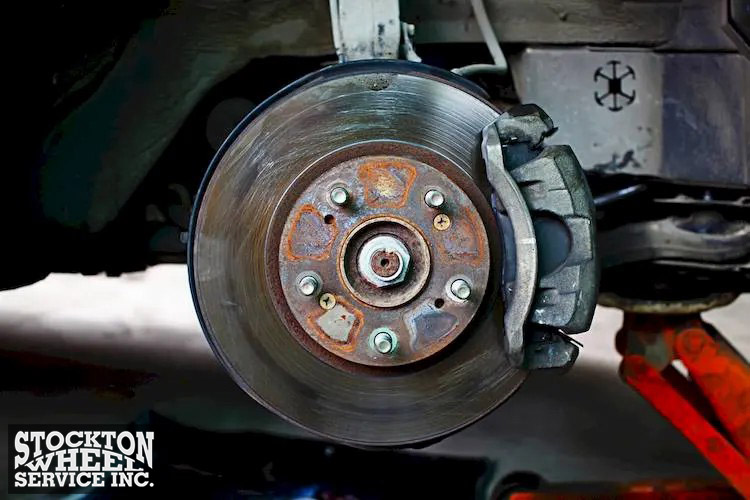
Suppose the rotors become uneven due to wear or excessive heat; they can cause the brake pedal and steering wheel to shake when braking. This vibration is a sign that your brake system requires attention, often in the form of rotor resurfacing or replacement.
See more: Wheel bearing replacement cost
Other Reasons For Car Vibrating While Driving
Car shaking can be caused by various factors beyond the reason above. Here are some additional reasons for cars vibrating while driving: issues with tires, wheel bearings, bad axles, engine mounts, and so on.
Tire Problems
Unbalanced tires cause vibration. Tire problems often lurk as a silent culprit behind the unsettling experience of a shuddering car while driving. This issue can manifest in various ways, from subtle tremors to noticeable shakes, causing not only discomfort but also safety concerns.
Uneven tire wear or unbalanced tires can all be triggers for the shaking. Tires that have worn unevenly due to improper inflation or lack of rotation can create irregular contact with the road surface, resulting in an unsettling wobble. Even something as seemingly minor as a small weight imbalance on a tire can lead to vibrations that amplify with speed.
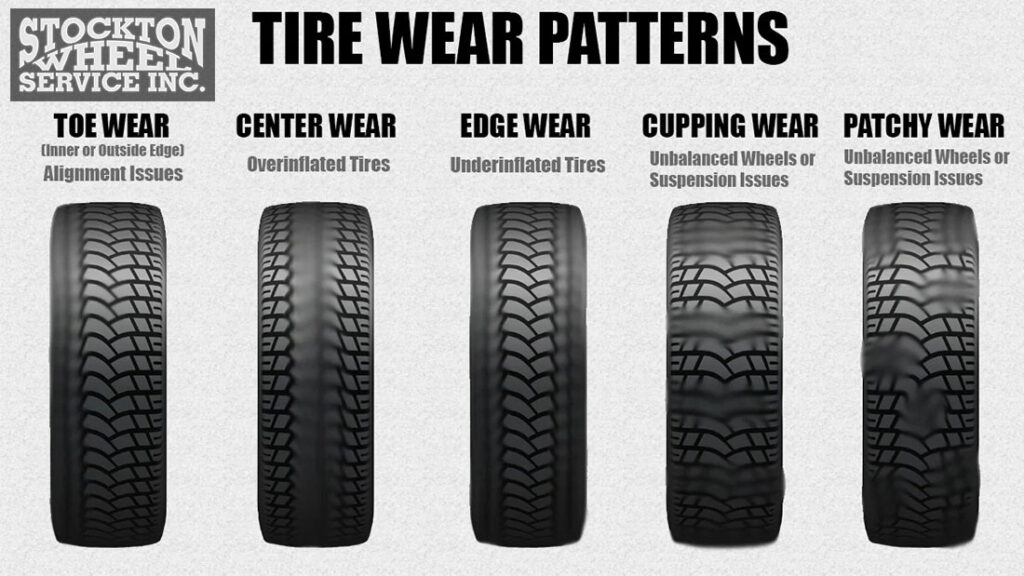
Faulty Wheel Bearing
Wheel bearings are crucial components that enable your wheels to spin smoothly. When they wear out or become damaged, excessive friction and vibrations will follow.
One common symptom of a bad wheel bearing is a noticeable beat or shaking, especially at higher speeds. As this component deteriorates, it can create uneven friction and movement in the wheel, creating vibrations that resonate throughout the vehicle.
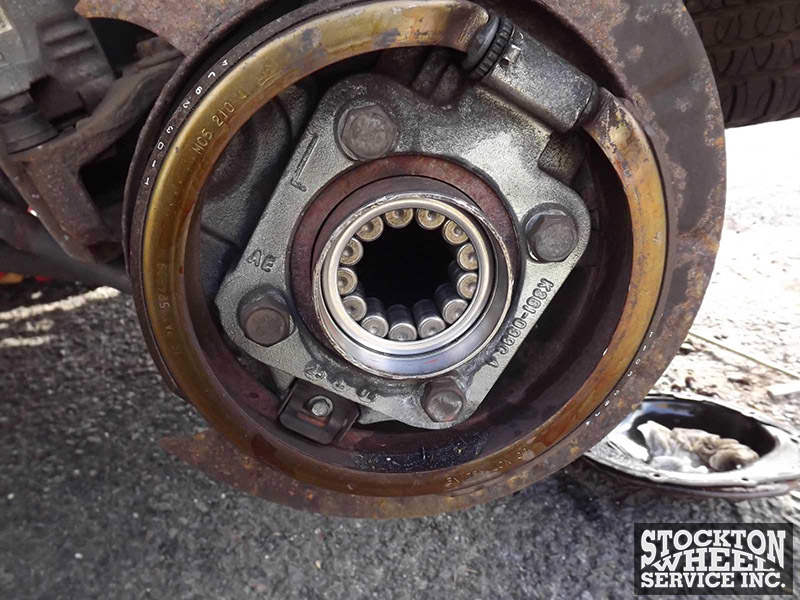
Additionally, a failing wheel bearing might produce a low-pitched humming or growling noise, which can also be an indicator of trouble. It’s crucial to address the issues promptly, as neglecting them can entail more severe problems and compromise safety.
Bent Or Uneven Axles
Discovering the root causes of car vibrations is crucial for a smooth and safe driving experience, and one often overlooked culprit is bent or uneven axles. The axle plays a pivotal role in connecting your wheels to the transmission, ensuring the power from the engine is transmitted to the wheels effectively.
When an axle becomes bent or damaged, it can throw the entire balance of your car out of whack. This imbalance can lead to noticeable vibrations, particularly when accelerating or maintaining highway speeds.
Uneven axles can result from various factors, including hitting potholes or curbs with force, accidents, or wear and tear over time. When the axles are compromised, the wheels spin unevenly, resulting in the unsettling sensation of vibration throughout the vehicle.
Motor Mounts Issues
Motor mounts are designed to secure the engine to the chassis while absorbing vibrations and reducing noise. Cracked, broken, or worn motor mounts can no longer provide the necessary support, allowing the engine to shift and move excessively during acceleration or idling. This movement sends shockwaves through the chassis, resulting in the vibrations you feel.
Symptoms include mild shaking to more pronounced juddering sensations, and the severity of the vibrations often correlates with the extent of the damage to the mounts.
Bad Spark Plugs
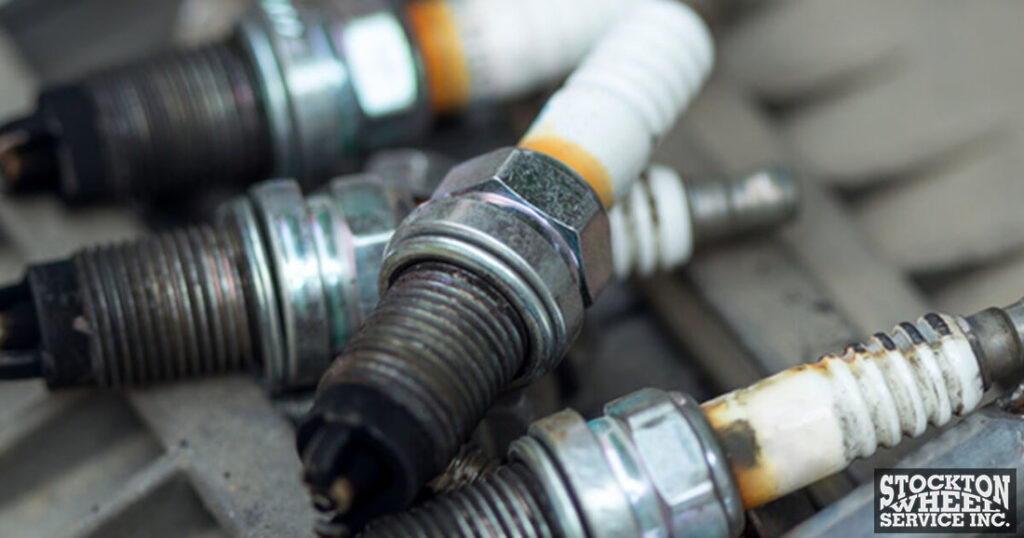
While you might not immediately associate spark plugs with car vibrations, they can indeed be a contributing factor.
Damaged or fouled spark plugs can misfire, creating uneven power delivery to the engine. This irregularity sends shockwaves through the car, which you feel as vibrations. You can spot subtle tremors or more pronounced shakes, especially during acceleration or while idling.
Additionally, misfiring spark plugs can negatively impact fuel efficiency, engine performance, and emissions.
How To Fix Your Car Vibration
Fix The Tire
The primary reason for a car experiencing vibrations during driving typically lies in wheel-related issues, making it the logical starting point for investigation. Your initial focus should be directed towards a thorough examination of the wheels, particularly checking for visible damage that is discernible to the naked eye, such as tire deformations or rim impairments.
Given that most individuals do not possess a wheel balancer machine in their personal inventory, taking the vehicle to a reputable tire service center for this precise procedure is the go-to move. Wheel balancing is generally a cost-effective intervention and often proves to be the solution to a vibrating car in many instances.
Check Your Brake Rotors
A thorough examination will involve scrutinizing the brake rotors for any signs of corrosion and evaluating their condition for potential warping. When a rotor is found to be warped, it’s imperative to opt for a replacement without hesitation.
Conducting a test drive might be part of the diagnostic process, particularly to assess whether vibrations manifest when the brake pedal is applied. Should the shake intensify noticeably during braking, it signals a red flag for further investigation.
Vibrations transmitted through the steering wheel point to potential issues with the front brake rotors. Meanwhile, suppose the shaking occurs elsewhere; it’s an indicator of rear brake rotor complications. In cases where no shakes occur during braking, the mechanic may recommend embarking on an engine diagnosis to pinpoint any underlying issues.
Fix The Suspension
Next, inspect the car’s suspension system for potential problems. Examining each of the crucial parts of the suspension, such as the tie rods, bushings, and associated components, is essential.
Since either of the front or rear suspension systems may be responsible for the uncomfortable vibrations felt while driving, both require your attention. Lift the wheels off the ground and gently move them in different directions to inspect the integrity of the suspension. Look for any noticeable play that might point to bushing wear or other issues with the suspension.
In addition, ensure the power steering fluid reservoir is filled and check for any leaks near the driveshaft boots, which could indicate a defective CV joint.
How To Prevent Car Shaking
Preventing your car from shaking involves proactive maintenance and regular inspections. Here are some effective strategies to keep vibrations at bay.
- Regular tire rotations and balancing: Schedule routine tire rotations and balance checks. This not only extends the life of your tires but also maintains their warranty validity.
- Driveline maintenance: Stay on top of driveline maintenance, ensuring components like axles, driveshafts, and universal joints are in good condition.
- Steering gear and suspension inspection: Periodically inspect your suspension system and steering gear for wear and tear.
- Tire inspections: Regularly examine your tires for issues such as bulges, excessive wear, debris lodged in the treads, or any other potential problems.
- Scheduled undercarriage inspections: Consider performing undercarriage inspections during routine service or tire rotations. Technicians can access a clear view of the components from a lube rack, allowing them to identify and address any issues promptly.
Frequently Asked Questions
Can Bad Brakes Cause Your Car To Shake?
Yes, bad brakes can cause your car to shake. When brake components like rotors or brake pads are worn or damaged, it can lead to uneven automotive braking and vibrations.
Can You Feel A Warped Rotor While Driving?
Yes, you can feel a warped rotor while driving. A warped brake rotor can cause vibrations and pulsations in the steering wheel and brake pedal when you apply the brakes. These sensations are typically more pronounced during braking and indicate that the rotor’s surface is uneven, affecting braking performance and comfort.
Can Warped Rotors Cause Vibration When Not Braking?
Warped rotors can cause shakes even when not braking. If the rotors are severely warped, they can create a constant, mild vibration while driving, which can be sensed in the steering wheel. Still, the vibrations are usually more noticeable and pronounced when you apply the brakes.
The Bottom Line
Both misalignment and warped brake rotors can be major contributors to the unsettling experience of car shaking. Ignoring these issues not only sacrifices your driving comfort but also poses potential safety risks. The good news is that with regular maintenance and complete repairs, you can address these problems and ensure a smoother, more enjoyable journey on the road.

